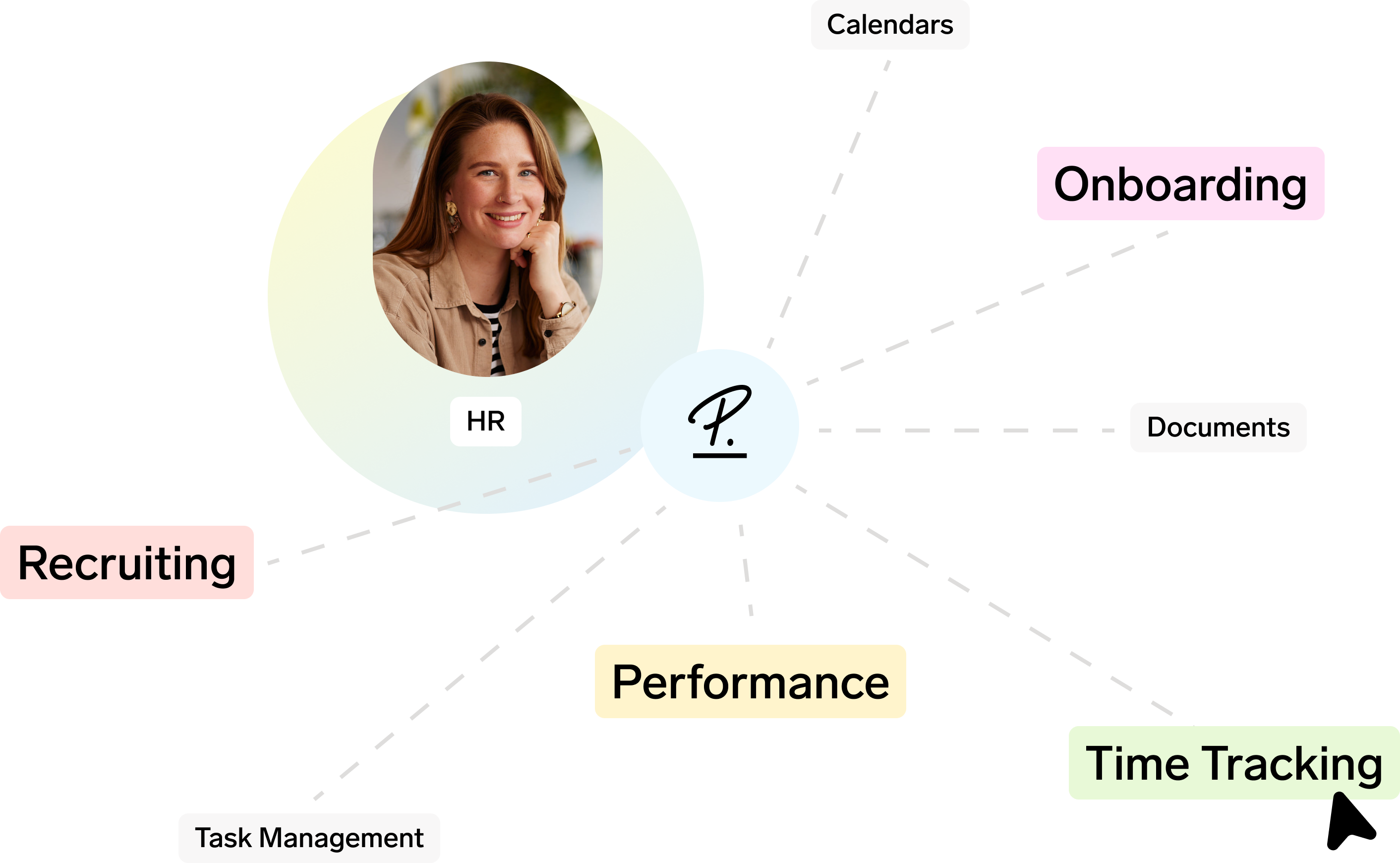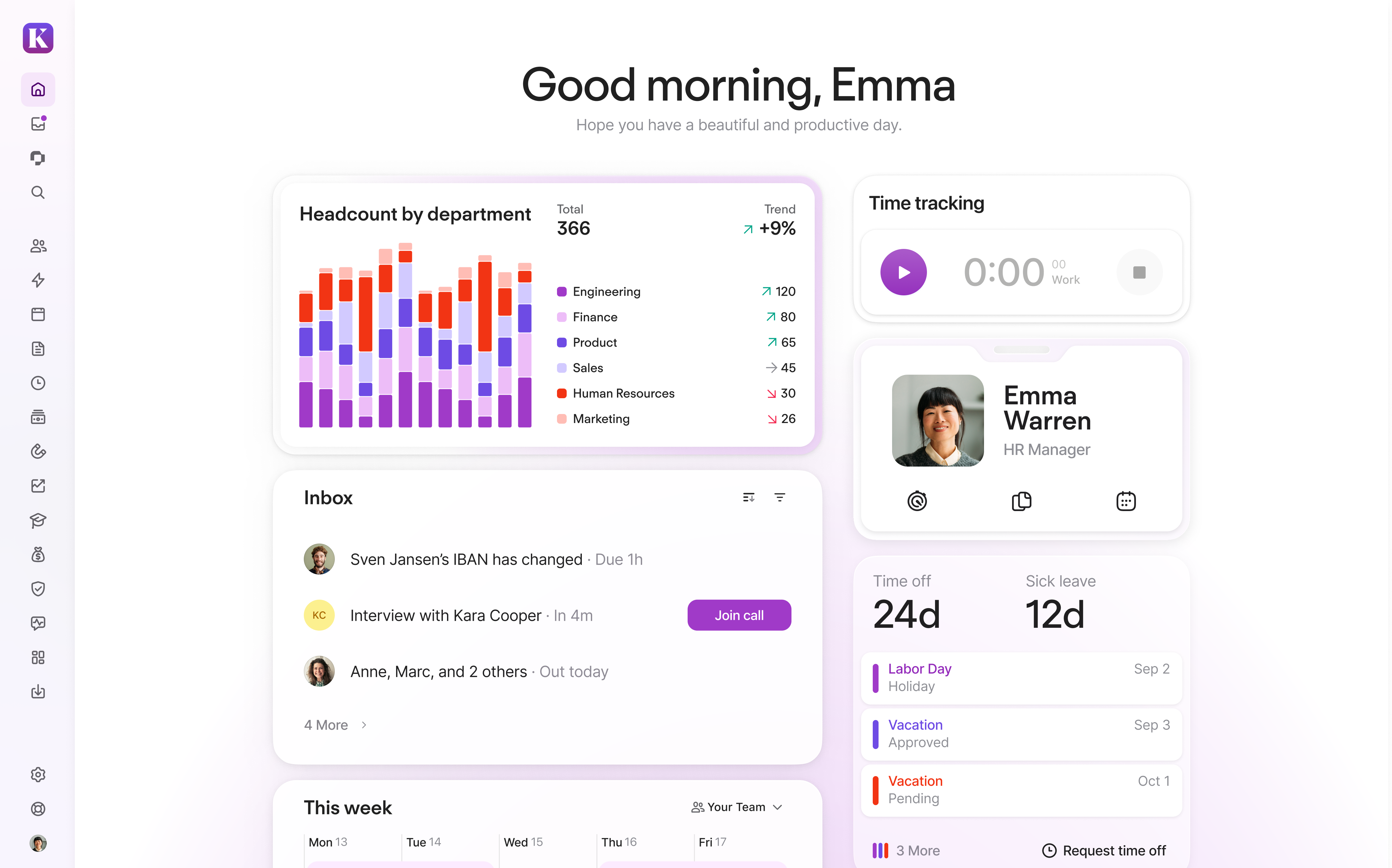Latest Blog Posts
What is the ROI of implementing HRM software: Is it worth the investment?

Human Resource Management (HRM) software handles all your employee-related processes, from hiring and onboarding to payroll and performance. If you’re considering an HR management solution to cut admin time, reduce errors and improve HR efficiency, you’re not alone. But is it worth the investment?
Justifying the extra expense can be tricky, especially when many benefits like employee experience, engagement, and ROI are hard to quantify. How do you measure these advantages to build a solid business case?
In this article, we’ll walk you through what HRM software is, how to evaluate ROI and long-term benefits of implementing it in your organisation.
Understanding the ROI of HRM software
Understanding what HRM software costs is only half the story. Ask yourself: what is the role and potential value of HRM software for your organisation?
To truly understand the ROI, you must consider its impact on all aspects of HR management.
H3: Significant cost savings
By automating tasks, you can reduce spending on labour and resources across various departments. According to our 2024 Power of Personio Report, businesses can save up to 31% on HR costs and 17% on payroll-related expenses. This translates into direct cost savings as you’ll spend 18% less time in IT support.
It also frees up HR teams to focus deeper on critical tasks, like workforce planning, and find ways to reduce expenses further.
Productivity gains
Our report found that you can expect HR processes to improve output, allowing your HR team to work up to 42% faster and become 38% more efficient with Personio.
Onboarding, for example, becomes smoother with automated checklists, document signing, custom workflows and notifications to guide new employees through the process.
Improved employee experience
HR software improves the employee experience by offering self-service options, faster responses, and more transparency.
Automated messaging helps you become more supportive of your people’s needs. Our AI-powered Conversations feature lets you automatically provide targeted advice or redirect staff to resources.
But HR management software isn’t all about automation. Many employees appreciate self-service features that allow them to view, upload and amend their files. They get more autonomy over how their data gets handled and greater assurance about security at your organisation.
Optimised recruitment processes
Recruitment has a major impact on finances, as the longer the hiring process, the longer critical positions go unfilled. The median cost to fill an empty role ranges between £1,500 and £2,000, and any way you can reduce this will positively impact your business’s bottom line.
With HR systems like Personio, you can reduce the time to hire by 24% and minimise productivity gaps.
Our software speeds up hiring by automating tasks like posting ads, screening CVs and scheduling interviews – reducing time to hire and improving candidate quality.
Fewer errors, better data
HRMs help you avoid costly mistakes by automating key processes like payroll and leave management, giving you more oversight on related data.
Time tracking is a good example. If you miscalculate the number of hours an employee has worked and run the payroll, you might need to pay extra for an immediate transfer to fix the mistake. HRMs prevent errors like these by automatically recording time sheets and sharing the data with your payroll.
Stronger compliance
Leveraging HRMs to improve accuracy doesn’t just spare you the cost of fixing mistakes. Errors and oversights can lead to compliance issues, with hefty penalties attached.
For example, most HR management systems help you collect, verify and store your team’s documents. This helps you check whether all new hires have the right to work in the UK, potentially avoiding fines of up to £60,000 per worker.
Compliance issues often have a snowball effect. News about penalties or legal action can cause organisations to lose credibility with customers and employees alike. And the bad press can deter people from working with you, hurting your business in the long run.
By improving compliance management with an HRM, you’re future proofing your business from legal issues, fines and damage to your reputation.
All-around smoother HR operations
Altogether, HR software reduces the friction in everyday processes and resolves common problems, making operations easier for everyone.
When all your processes run through one platform, your team doesn’t have to juggle multiple systems or tools. Everything is more connected, consistent, and efficient.
There’s also less need for departments to message back and forth, reducing tool-switching, minimising the risk of duplicated tasks and speeding decision making.
The cost of HRM software: What to expect and budget for
HRM software costs can vary by users and features. It's better to focus on finding a pricing structure that fits into your budget while meeting your requirements.
Here are the aspects of HR software pricing you need to think about.
Tiered plans
Many HR management software tools have tiered pricing, starting with basic features at a lower cost. As your organisation and its needs evolve and grow, you can upgrade to access advanced HR features. This means that small businesses don’t have to pay for tools they won’t use and can help protect their profit margins.
For example, Personio’s HR software offers a Core plan with essentials like automated workflows and document management, while our Core Pro adds more advanced capabilities like position management and our public API.
Subscription models
HR management software usually follows a subscription-based model where you pay a recurring fee at a given interval. Here are a few common types of pricing plans:
Pay as you go: Access the software as and when you need it, with no commitment
Fixed rate: Agree to pay the same rate per month for specific features
Per-user pricing: Pay a floating rate based on the number of people who use the system
Usage-based: Pay based on how much you use software features, like background checks or payroll runs
Many systems use a mix of strategies to keep prices competitive. For instance, Personio has a fixed per user fee for most products but applies a floating rate for job postings.
Add-ons
Some HRMs offer optional extra HR modules like recruitment and performance management that enhance the platform’s capabilities. This gives you more control over the costs and the complexity of your setup.
While you can use third-party software integrations to achieve certain functionality, these add-ons are built for your specific HR management software, meaning they may be easier to implement and incorporate into your existing workflows.
Discounts
Great HR solutions recognise exceptional circumstances where organisations need a lower rate. For example, many charities and nonprofits operate with a limited budget as they rely on contributions. For example, Personio offers a special discount for qualifying organisations.
Is HRM software worth the investment?
While the initial cost of an HRM might seem like a hurdle, the ROI extends well beyond monetary savings.
This is software that can reduce administrative burden and compliance risks and boost employee engagement and retention, creating a multiplier effect across your organisation.
When you factor in the productivity gains, faster onboarding, fewer payroll errors, and better data visibility, the return is clear. And the long-term benefits, like higher employee satisfaction and reduced turnover, support sustainable growth.
In a fast-moving business landscape, HRM software isn’t just a nice-to-have – it's a strategic advantage.
The real question is: can you afford not to invest?
Why Personio is the smartest investment your HR team can make

Over a third of small to medium businesses still haven’t invested in HRM software. But those that do see meaningful results – from faster processes to improved team satisfaction.
Now, it’s time to make that leap. While thoughts of your budget may hold you back, our research shows companies can expect a 6% jump in revenue after implementing Personio.
Investing in powerful HRM software is investing in a complete HR solution that automates everyday tasks, unlocks smarter insights, and builds a workplace where people want to thrive.
It’s not just about saving time. Personio helps you create a stronger company culture that HR, employees, and the business as a whole want to be part of.
Book a demo and discover the ROI of powerful HRM software firsthand
Discover firsthand the ROI of powerful HRM software

Personio’s features make your team more agile and accurate, saving you time and money.
See Personio in actionFAQs
What is the best HR software?
The best HR software for you depends on many factors, such as your business size and industry. That said, top solutions should have all the essential features, such as attendance monitoring and performance management, plus desirable extras like payroll and recruitment tools.
What kind of software is used in HR?
HR professionals leverage a combination of features to automate and monitor processes using human resource management (HRM) software. Some common examples include workflow automation, document management and people analytics. Modern HRM software has self-service features, so employees can also benefit directly from using the tools.


